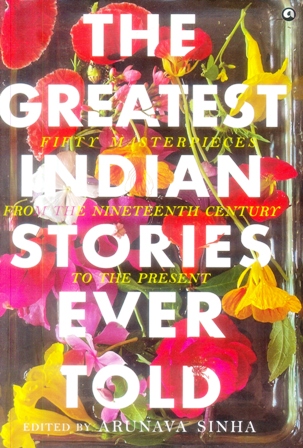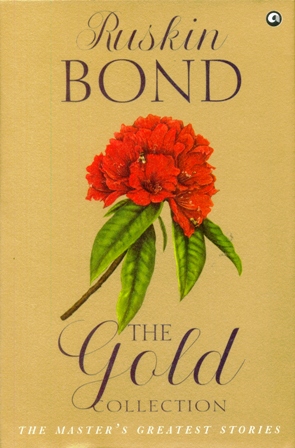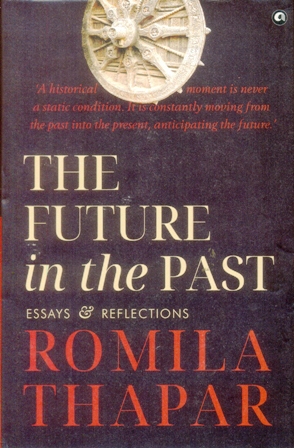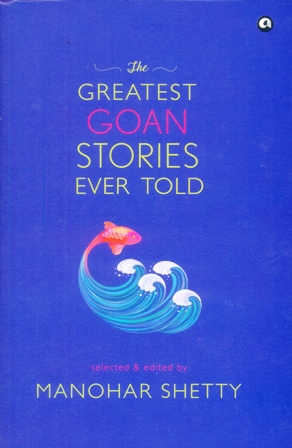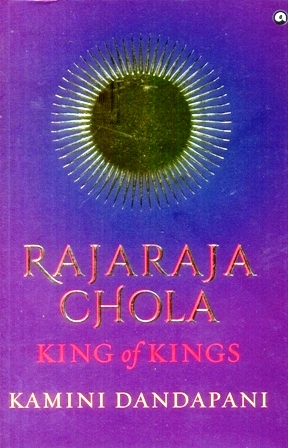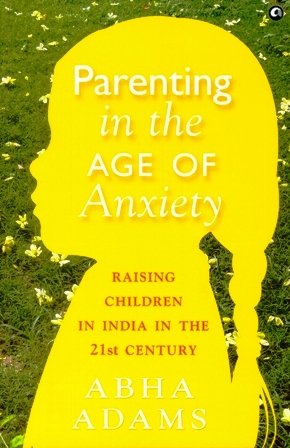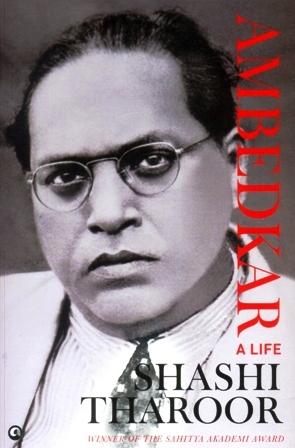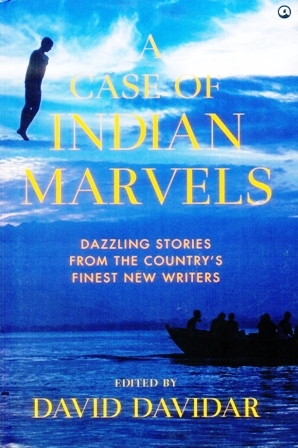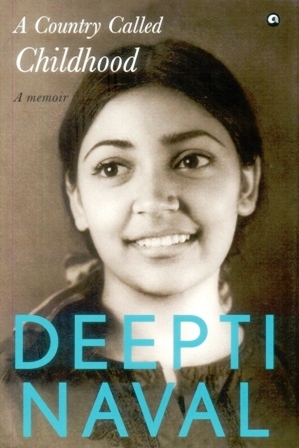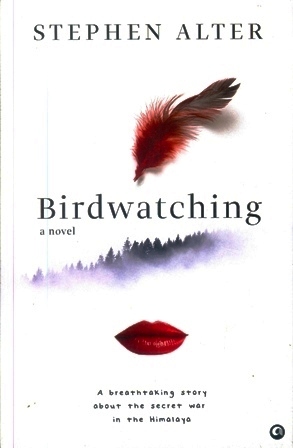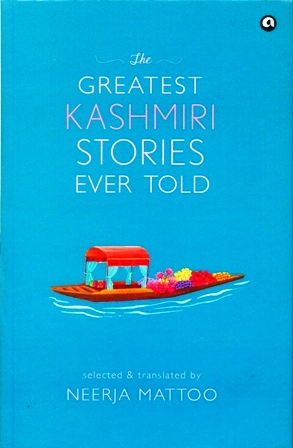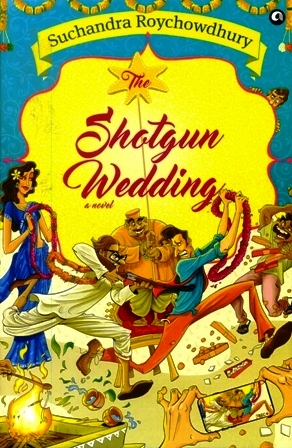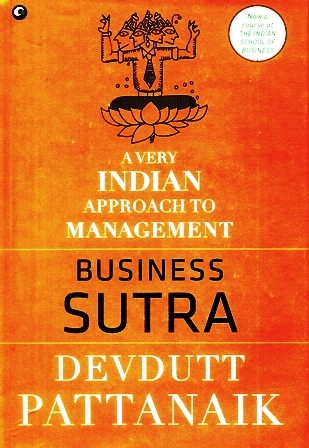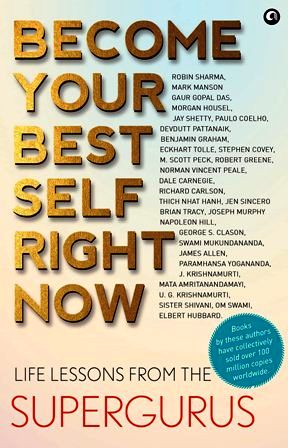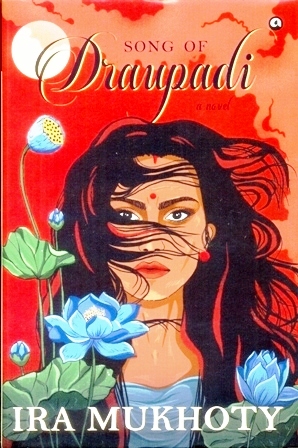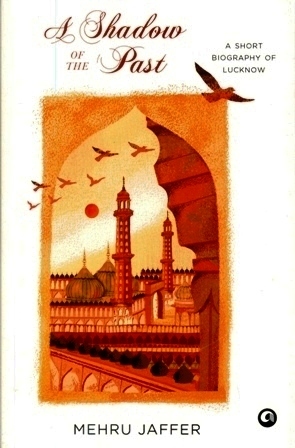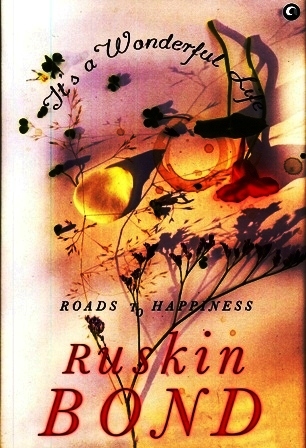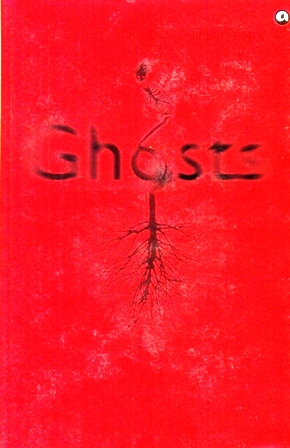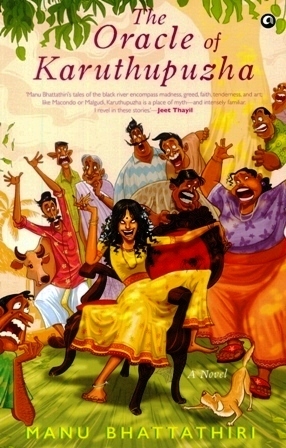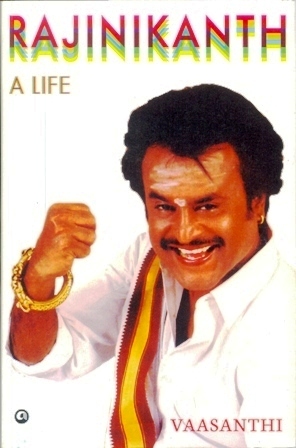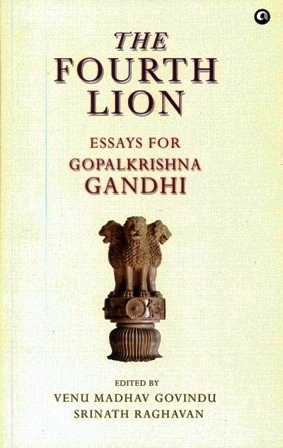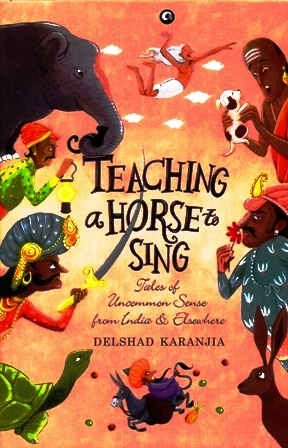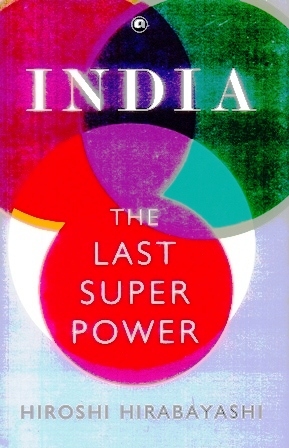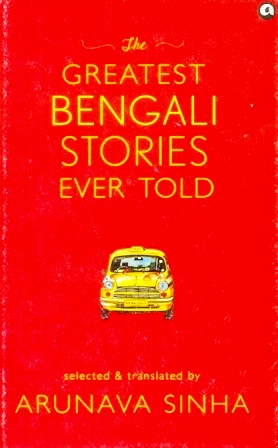-
The Greatest Indian Stories Ever Told
The Greatest Indian Stories Ever Told is a selection of some of the finest literary short fiction written by Indian writers since the genre came into being in the country in the late nineteenth century. Including early masters of the form, contemporary stars, as well as brilliant writers who came of age in the twenty-first century, this anthology takes in its sweep stories from the various regions, languages, and literatures of India. These authors are some of the most feted in the annals of Indian literature and have, between them, won virtually every major literary prize on offer—including the Nobel Prize for Literature, the Jnanpith Award, the Sahitya Akademi Award, and numerous state, national, and international honours.
-
The Gold Collection
The ten stories in The Gold Collection are among the finest ever written by India’s most beloved writer, Ruskin Bond. Some of them, including masterpieces like ‘The Blue Umbrella’, ‘Angry River’, and ‘Panther’s Moon’, were written early in the writer’s career, while others, such as ‘Rhododendrons in the Mist’ and ‘Miracle at Happy Bazaar’, are more recent. All of them remain as golden as they were when they first emerged from the master’s imagination. A collection that will be treasured by all those who love Ruskin Bond’s fiction.
-
The Future In The Past
The Future in the Past brings together essays by Romila Thapar on issues and ideas that have preoccupied her throughout her career. These are subjects that surfaced frequently in discussions over the last six decades as they do even more so at present. Among them are the use and misuse of history, the myths surrounding the coming of the Aryans, religious fundamentalism in the study of society, the overt and the insidious attempts by right-wing elements to pervert Indian culture, variants of the Ramayana, the importance of museums, why dissent is important to democracy, the role of the public intellectual, and much more. Central to the arguments in these essays (versions of which first appeared in Seminar magazine) is an analysis of how the past permeates the present and influences the future.
-
Rajaraja Chola:King of Kings
Rajaraja Chola, King of Kings, Incomparable Chola, Great Saviour, Jewel of the Solar Dynasty, Lion Among Kings, was one of the greatest rulers of medieval India. During his reign, the Chola empire expanded through virtually all of the southern reaches of the peninsula and beyond, from the Krishna-Godavari delta in northern Andhra Pradesh to large parts of northern Sri Lanka. Born Arulmozhi Varman in 947 ce, he trained under his father and uncle for over a quarter of a century and then ruled for twenty-nine years. King of Kings is a fitting title for this multifaceted man who was brilliant, ambitious, ruthless, and a visionary. He fortified the foundations of what was till then a ragtag kingdom, put into place a meticulously organized system of administration, and led the kingdom to reign supreme in military might, as an economic powerhouse, and in art, architecture, literature, music, and dance. In this book, Kamini Dandapani explores the man behind the larger-than-life image of Rajaraja and the milieu in which he reigned. The origins of the Chola empire lie in the Sangam era around 2,000 years ago, when the first rulers of the family, men like Karikala and Kochengannan, ruled over small tracts of land around the Kaveri delta. By the middle of the ninth century, the ‘Imperial Cholas’ (as historians named them) began to consolidate power at the expense of rivals like the Pallavas, Rashtrakutas, Chalukyas, Cheras, Gangas, Pandyas, and other smaller kingdoms. Rajaraja became king in 985 ce and, during his reign, the Chola empire reached its zenith. All his major achievements are described in detail—victories on the battlefield, the expansion of territory, the building of the monumental Brihadeeshwara Temple, the gargantuan land survey, and much else besides. The book goes into every aspect of Chola society—the place of women, the flowering of culture, including the making of exquisite Chola bronzes, the spread of religion, and the lives of ordinary people. After the death of Rajaraja in 1014, his son Rajendra expanded the empire; others that followed had mixed fortunes and, a couple of centuries later, the dynasty succumbed to their greatest rivals, the andyas. However, in their heyday, and especially under their greatest king, few empires or emperors could compare with the Cholas and Rajaraja. This scrupulously researched and brilliantly told biography brings to vivid and compelling life one of India’s greatest empires and rulers. Read less Other Formats: Hardcover inclusive of all taxes Buy now Sold by: Amazon Asia-Pacific Holdings Private Limited Back to top
-
Parenting In The Age OF Anxiety
Over the past decade, Indian society has experienced a significant increase in rates of depression, self-harm, and anxiety disorders among children and young adults. This increase coincides with massive changes in our lifestyles, family structures, our approach to pedagogy, and expectations from the school system. In addition, our society has become intensely consumer- (and consumption-) driven with a proliferation of attractive products, enticing guarantees, and specialist advice. But social media follower counts, expensive digital devices, and the deluge of information on the internet will never be adequate replacements for active and present parenting. In Parenting in the Age of Anxiety, innovative educationist Abha Adams explores the journey that parents, children, and educators take together over the first eighteen years of a child’s life. In the first chapter, ‘Parenting Is for Life’, she explores the various ups and downs parents encounter as they start their parenting journey in a world that is highly competitive with a bewildering array of options for every stage and activity. The second chapter, ‘Welcome to the Tween Years’, looks at a recent phenomenon that has left parents and children perturbed—kids growing older younger/faster, where children reach puberty earlier than in the past. ‘The Teen Years’ attempts to demystify these years and offers counsel to parents on how to communicate with their teenaged children and deal with teenage angst. ‘Bridge to Inclusion’ challenges the invisibility forced by society on differently-abled children and their parents, and offers suggestions on how the struggles, needs, and desires of these children ought to be tackled. The last chapter, ‘The Silence around the Mental Health of Our Children’ provides a helpful guide to supporting children at a time of unprecedented levels of stress and isolation stemming from device and internet addiction and the lack of meaningful connection and communication, which has only been exacerbated by the interruptions and uncertainty caused by the Covid-19 pandemic. Full of insightful observations from family therapists, child psychologists, teachers, parents, and children growing up in twentyfirst- century India, this book takes a deep look at the most important issues troubling children and parents today and offers practical and compassionate advice on how these should be dealt with. Most importantly, it provides a blueprint for how children can grow up happy, resilient, and grounded in a rapidly changing world.
-
Ambedkar: A Life
Babasaheb Bhimrao Ramji Ambedkar, MA, MSc, PhD, DSc, DLitt, Bar-at-Law, is today among the most revered of Indians, his statues across the country second only in number to those of Mahatma Gandhi. He even overtook Gandhi in a recent poll to determine the ‘greatest Indian’ of modern times, in which over 20 million votes were cast. All the major political parties vie with one another to claim him as their own. To the Dalits, he is a revered figure who was chiefly responsible for outlawing untouchability and fighting to give dignity to the community. And, most of all, he is hailed as the father of India’s Constitution, the principal reason why India continues to remain a democracy with liberal, secular, plural values (although all these are under siege at the present time) that seeks to uphold the rights of the individual and uplift the downtrodden. Writes Shashi Tharoor: ‘Dr Ambedkar’s greatness cannot be reduced to any one of [his] accomplishments, because all were equally extraordinary.’ In this new biography, Tharoor tells Ambedkar’s story with great lucidity, insight, and admiration. He traces the arc of the great man’s life from his birth into a family of Mahars in the Bombay Presidency on 14 April 1891 to his death in Delhi on 6 December 1956. He describes the many humiliations and hurdles Ambedkar had to overcome in a society that stigmatized the community he was born into, and the single-minded determination with which he overcame every obstacle he encountered. We are given insights into the various battles Ambedkar fought to make untouchability illegal, his disputes with the other political and intellectual giants of his era, including Gandhi and Nehru, and his determination to invest India with a visionary Constitution that enshrined within it the inalienable rights of the individual and modern conceptions of social justice. ‘In so doing,’ writes Tharoor, ‘he transformed the lives of millions yet unborn, heaving an ancient civilization into the modern era through the force of his intellect and the power of his pen.’ Deeply researched, searching, and insightful, Ambedkar: A Life offers readers a fresh and profound understanding of one of the greatest Indians who ever lived.
-
A Case of Indian Marvels
A Case of Indian Marvels is the first major anthology of short stories by India’s most exciting new writers. The book pulls together the very best work of authors belonging to the millennial generation (born between 1981 and 1996) and Generation Z (born between the late 1990s and early 2010s). The forty stories in the volume explore every aspect of the Indian ethos in original and electrifying ways. Some stories deal with the dark times India is passing through, others are about life in the country’s villages, small towns, and big cities; there are tales about various aspects of contemporary Indian society and others set in the future or the ancient past. Some of the writers, including Kanishk Tharoor, Madhuri Vijay, Hansda Sowvendra Shekhar, Meena Kandasamy, Prayaag Akbar, Samhita Arni, Neel Patel, and Avinuo Kire, have already received considerable acclaim for books they have published, others are working on debut collections of stories and novels that are expected to be published soon. These writers will dominate the literary scene in the twenty-first century, and on the evidence of the work represented in this volume, the future of Indian literature is in very good hands.
-
A Country Called Childhood
A Country Called Childhood is a beautifully told memoir of growing up in Amritsar in the tumultuous 1950s and 60s by award-winning actress Deepti Naval. In extremely visual and evocative prose, Naval describes an unforgettable childhood filled with love, adventure, mystery, tragedy, and joy. She uncovers, in great detail, life in an unconventional Punjabi family while plunging the reader into the distinctive sights, smells, and sounds of a fast-vanishing India. Starting at the moment of her birth on a rainy night, she tracks her journey to adulthood, a path punctuated by many personal turning points as also momentous events of national importance, such as the Sino-Indian War of 1962 and the Indo-Pak War of 1965. Moving and illuminating, A Country Called Childhood shows how Naval’s early love affair with cinema and the experiences of her childhood shaped her career as one of the country’s most admired actors.
-
Birdwatching
When American ornithologist Guy Fletcher stumbles upon a dead body near Chanakyapuri, New Delhi’s diplomatic enclave, he does not realize that his life is about to change drastically. Soon, he is recruited into the CIA and sent straight into the heart of a secret war raging in the Himalaya. Alongside him are his two unlikely partners—the enigmatic Captain Imtiaz Afridi of the Indian Military Intelligence, whom he meets on a hunting trip in Kashmir, and the mysterious but alluring Kesang Sherpa, who saunters into his world in Kalimpong. Their missions and emotions inextricably entwined, the three must learn to trust their own instincts, and one another, to uncover what lies beneath the dazzling Himalayan snow. Set against the backdrop of the Sino–Indian war of 1962, Birdwatching is a gripping tale of high intrigue and mystery.
-
The Greatest Kashmiri Stories Ever Told
The Greatest Kashmiri Stories Ever Told spans almost a century of work by some of the finest writers of short fiction in the language. The storytellers included here range from the earliest practitioners of the craft of short story writing—Dinanath Nadim, Somnath Zutshi, Ali Mohammad Lone—to more contemporary writers like Dheeba Nazir. Some stories in this collection are realistic dramas that hold up a startlingly clear mirror to society, such as Sofi Ghulam Mohammad’s ‘Paper Tigers’, or lay bare the pain of losing one’s homeland, as Rattan Lal Shant does in ‘Moss Floating on Water’. Then there are others like Ghulam Nabi Shakir’s ‘Unquenched Thirst’ and Umesh Kaul’s ‘The Heart’s Bondage’, that look beyond the exterior and focus on the complex inner lives of the women of Kashmir. Selected and translated by Neerja Mattoo, the twenty-five stories in this volume, all born out of the Kashmiri experience, will resonate with readers everywhere.
-
The Shotgun Wedding
When Dita Roy is appointed as an English lecturer in a college in the sleepy little village of Phulpukur, she puts aside all her doubts about the institution’s dubious credentials and accepts the position. In Phulpukur College, she meets the mysterious Raja, a tall, handsome man with startling grey eyes, who serves her tea on her first day on the job. For Raja, Dita is a breath of fresh air in an otherwise claustrophobic environment. What the two do not know is that their chance encounter will soon gain them, and Phulpukur College, lifelong notoriety A comic, hilarious tale about romance tangled up in the complex politics of rural Bengal, The Shotgun Wedding is a sparkling debut showing us, once again, the power of love.
-
Business Sutra: A Very Indian Approach to Manageme
Business Sutra: A very Indian Approach to Management is a radical, nuanced approach to management, business and leadership in a progressively polarized world. In this landmark book, bestselling author, leadership coach and mythologist Devdutt Pattanaik shows how, despite its veneer of objectivity, modern management is rooted in Western beliefs and obsessed with accomplishing rigid objectives and increasing shareholder value. By contrast, the Indian way of doing business, as apparent in Indian mythology but no longer seen in practice accommodates subjectivity and diversity and offers an inclusive, more empathetic way of achieving success. Great value is placed on darshan, that is, on how we see the world and our relationship with Lakshmi, the goddess of wealth. Business Sutra uses stories, symbols and rituals drawn from Hindu, Jain and Buddhist mythology to understand a wide variety of business situations that range from running a successful tea stall to nurturing talent in a large multinational corporation. At the heart of the book is a compelling premise: if we believe that wealth needs to be chased, the workplace becomes a rana-bhoomi - a battleground of investors, regulators, employers, employees, vendors, competitors and customers, if we believe that wealth needs to be attracted, the workplace becomes a ranga-bhoomi - a playground where everyone is happy.
-
Become Your Best Self Right Now:Life Lessons From
The men and women whose life lessons feature in this volume are among the modern world’s greatest supergurus. Their books have collectively sold over a hundred million copies. They have changed the lives of their readers and followers in every corner of the globe. Some of their finest insights are to be found in Become Your Best Self Right Now. Read the book and transform your life!
-
Song Of Draupadi
The Mahabharat is renowned for its great battles, heroic men, and gods walking the pathways of mortals. However, the beating heart of the epic is often forgotten—the stories of its women. Many of these exceptional women appear in Song of Draupadi—the indomitable Satyavati, the otherworldly Ganga, the indestructible Kunti, and the tenacious Gandhari—but the passionate and fiery Draupadi rises above them all to grip the imagination of the reader. Born of a dangerous sacrifice, Draupadi and her brother Drishtadumna are called forth to avenge Drona’s insult to their father. While Drishtadumna is expected to kill Drona on the battlefield, Draupadi’s role is not set out, but she dreams of fire and blood. From beloved daughter and princess of Panchala to wife of the brave Pandavas and queen of Indraprastha, Draupadi finds herself exiled to the forest, humiliated and determined on vengeance. The novel is a symphony, in several keys, of her voice and those of the other women around her—arguing, pleading, reasoning, and often raised in righteous anger.
-
A Shadow Of The Past
Over the centuries, Indo-Islamic and European ideas merged with Hindu traditions to make Lucknow a powerhouse of creativity and the centre of what was known as Ganga-Jamuni tehzeeb, the evocative Awadhi phrase for Hindu–Muslim syncretism. A city known for its art and artisans, the courts of the nineteenth–century rulers of Lucknow swarmed with people from all over the subcontinent as well as European painters and photographers. In the third quarter of the eighteenth century, poets from Delhi’s Mughal court migrated to Lucknow in the hope of better emoluments. Lucknow’s legendary status as a city of culture waxed with every new influx of creative geniuses. A Shadow of the Past celebrates the people responsible for the city’s fame—its nawabs, painters, writers, revolutionaries, and freedom fighters. At a time when Uttar Pradesh has been reduced to one of the most backward states of the country, Mehru Jaffer shows us how Lucknow’s glorious cultural heritage ensures that it remains a city of substance.
-
The Oracle of Karuthupuzha
With two cows and four mouths to feed, Nareshan can barely make ends meet selling milk to the inhabitants of Karuthupuzha. That is, until his daughter, Sarasu, is possessed by the demon-god, Chaathan. Now, the faithful from all over Karuthupuzha and beyond visit Nareshan with money and gifts to receive Chaathan’s blessings. The sceptics of the town, meanwhile, believe that Nareshan is fooling everyone to make money. However, when one of the leading sceptics in town, Dasappan, member of the Communist Party, rationalist and atheist, loses his mind after loudly proclaiming that Chaathan is a farce, the people’s belief in a divine power residing in Sarasu is reinforced.With the number of faithful only growing as each day passes, Nareshan realizes that his daughter’s possession might be the best thing to have happened to him. When the rich widow Ponnamma comes to his house to seek help from Chaathan for her son, Nanu, the fate of Nareshan and his family is set to change forever. In The Oracle of Karuthupuzha, Manu Bhattathiri revisits the town of Karuthupuzha that was immortalized in The Town That Laughed and Savithri’s Special Room and Other Stories.
-
RAJINIKANTH
Superstar Rajinikanth defies all conventional analyses—no one has reigned Supreme for as long as he has in the world of Indian cinema. With over 150 films under his belt, many of them blockbusters, he still plays the hero at seventy, and the devotion of his legions of fans has not waned during the forty-odd years of his stardom. In a state that saw the Dravidian self-respect movement propagate atheism, fans worship his cut-outs and bathe them with milk and beer, as if he were their God. In a society famous for its pride in its language, It is curious that a Kannadiga whose family hails from Maharashtra, an outsider, should emerge as a ‘thalaivar’, or leader. With the death of the charismatic J. Jayalalithaa, a former actor, and M. Karunanidhi, who was a scriptwriter for films—leaders of the AIADMK and DMK respectively (The two main Dravidian political parties that have been ruling Tamil Nadu for more than sixty years)—rajinikanth’s fans believed there was a political vacuum that only he could fill. While the actor has been dabbling in politics, by making pronouncements on certain issues, including jayalalithaa’s policies, the Cauvery water sharing problem between Tamil Nadu and Karnataka, bomb attacks in the state and so on, it was only in 2017 that he promised to form his own party and contest all 234 seats in the 2021 assembly elections. For decades, his fans had been awaiting this moment, believing that he could solve all their problems and give them a life free from strife and governance free of corruption. His fan clubs went into high gear to turn themselves into the foundation of their thalaivar’s political party, attracting more members and working on the ground all over the state. For three years, every utterance of rajinikanth’s was analysed and debated even more vociferously than anything he has said in the past. Political opponents questioned his experience and pointed out that (even after forty years) he was an outsider who did not understand the undercurrents of Tamil Nadu politics; his detractors criticized the lack of a clear ideology behind his promise of ‘spiritual politics’; political analysts who saw that rajini was close to the BJP anticipated that he might enter into an alliance with them, allowing the right-wing party a foothold in the state. Ultimately, however, the seventy-year-old superstar withdrew from the political arena citing health concerns. The fans were hugely disappointed but understanding. With their continuing support and excitement for the next rajini-starrer, he remains a giant in the field of entertainment. Rajinikanth: a life is the best account yet of the man who was born Shivaji Rao gaekwad—once a Coolie and a bus conductor in Bangalore and now virtually a God in Tamil Nadu.

